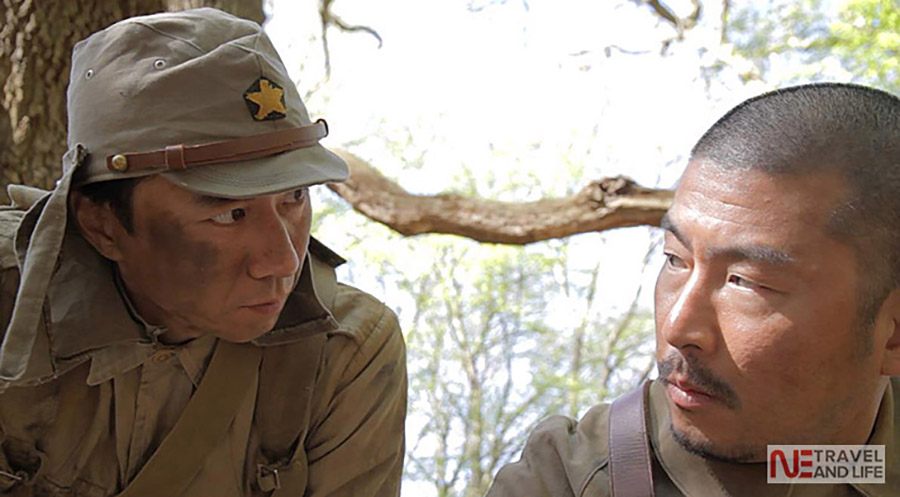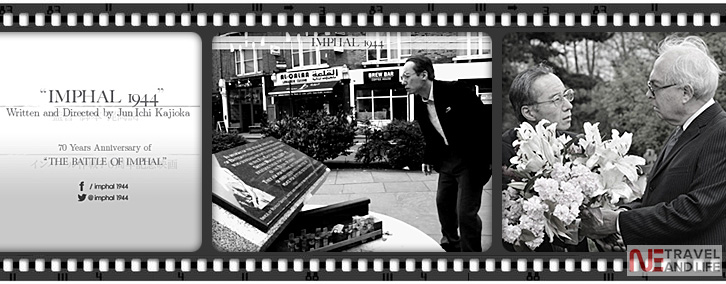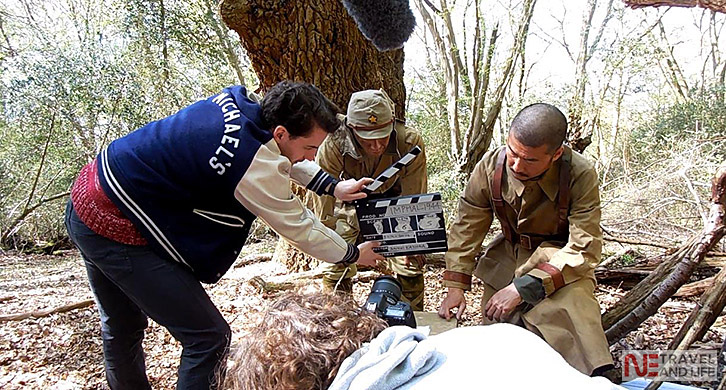
Junichi Kajioka, a London-based Japanese actor, launches his directorial venture with Imphal 1944, a film on the significant Battle of Imphal and Kohima which changed the fate of World War II. Kajioka has earlier acted in films such as 47 Ronin, starring Keanu Reeves, and The Flowers of War, starring Christian Bale. He will play the lead inthe under-production My Japanese Niece, another film based on World War II. Imphal 1944 is the first film that he has directed, acted, written and produced, and so obviously, the excitement levels run high. In a chat with NE Travel and Life, he talks about the movie, his inspiration and future plans.
Tell us about Imphal 1944 and the man who inspired it?
This is a short film based on the life of Lieutenant Masao Hirakubo, a young Japanese soldier who fought in the Battle of Kohima and Imphal during World War II (WWII). He was a part of the Burma Campaign launched by the Imperial Japanese Army when he joined in 1942. When he returned to Japan after the War ended, he found his family home destroyed in the Allied bombings. Disillusioned and heart-broken, he moved to London and rebuilt his life there.
The film focuses on the attempts he makes to reconnect with a British war veteran but it’s not easy for the British, as difficult memories come to the fore. Yet, the common ground for both of them is to remember their lost comrades.
Post War, Lt. Hirakubo went to Burma and visited the sites of the crucial battles several times. The visit was not for war but for peace, and to help raise funds for reconstruction of war memorial. Lt. Hirakubo died in 2008 at the age of 88.

I believe you were moved by what he said.
Yes. Lt. Hirakubo said: “We are made alive by the wishes of the war dead. It doesn’t matter whether they are British or Japanese, those who survived are members of the same group, which means that survivors from both sides can share the same grief for their fallen comrades.” This is also the essence of the film.
How did you decide to take up this subject for your directorial venture?
This year marks the 70th anniversary of the Battle of Imphal and I was keen to make the film for its symbolic commemoration. I came to know about the battle during the making of My Japanese Niece (a film based on WWII and made by Manipuri filmmaker Mohen Naorem). During that time, I met many Manipuri people and was surprised to see how sympathetic and friendly they were to the Japanese. Their positive attitude towards the Japanese continues to be passed on to the younger generation. Also, Battle of Imphal is a lesser known but a significant aspect of WWII and I was keen to tell the human story of this battle.
You have acted in a few Chinese war films such as Jiang Wen’s Devils on the Doorstep, Lu Chuan’s City of Life and Death and Zhang Yimou’s The Flowers of War. And now comes another war film. What draws you to them?
War films fascinate me very much. During the research for Imphal 1944, I found a lot of untold stories from the battle. Also, the battle itself is relatively unknown to the world and I want to put this story on to the world film map. However, this short film is actually not quite a war film. The story is more focused on the character’s reconciliation work and brave life after World War II and uses the scenes from the war in a flashback. The feature version will include more war scenes and will hopefully be shot in Manipur."

Tell us more on your journey into war movies.
I graduated from the Central Academy of Drama in China and had an opportunity to work in the Chinese film industry. But, of course in China, Japanese actors mostly get to play the villains!
All the Chinese war films that I acted in were great quite controversial at that point of time. They all have their own particular story to tell about the effects of war. However, the film I’ve worked in which was most directly related to peace was the Chinese film Pure Love. Through donations from supporters of the film, a Japanese-Chinese friendship school was built in a rural area in China. After the shooting, I visited the school and was happy to donate a lot of equipment for their use. It was a true friendship project and a really satisfying experience.
What was your experience of Manipur when you visited it the first time?
A London-based theatre director, with whom I had worked earlier, told me stories of floating islands in Manipur. This left an impression of a magical place in my mind. Moreover, I’d heard about the theatrical tradition, an important way of life in Manipur, and I felt some sort of a connection with the place. When I went there I found the people extremely friendly and hospitable. I was invited to peoples’ homes almost every day. I made a lot of friends! One special visit was to Ukhrul where I met Mr Shishak, who had worked with the Japanese soldiers during the War. The meeting was unforgettable as was the local women encircling and singing for me.
The other thing I loved was the way local food is served on banana leaves. I missed trying out Hawaijaar but will definitely have it on my next visit. We have a similar type of food in Japan called Natto, which is fermented soy beans.

How relevant will a film based in a small part of India be internationally? Will it be able to attract audiences? Have you received any reactions to the film?
I believe that there is a growing international interest in world cinema. A good film can capture some of the unique essence of a culture and a place, and tell very powerful stories. Manipur has many stories to tell to the world.
I set up a Facebook page for the film and within a month we had 3,000 ‘Likes’. We continue to receive many supportive messages every day. I’m grateful that I could get so much support and help from Manipur. At the same time, a lot of really talented people have volunteered for this project. A Tokyo-based musical group ‘Luna Luna’ is doing a song about Imphal for the film. We will introduce it on the Facebook page soon. Please spread the word for us because this is not a one-off project, I’d love to boost the friendship among Japan, the UK and Manipur.
When are we going to see the film?
Editing of the film is currently underway. It will be screened in Imphal at the closing ceremony commemorating the Battle of Imphal on June 28, 2014. Later it will be shown at various film festivals around the world. I am hoping to get enough support to make the feature version of Imphal 1944 with local Manipur talent and crew. It will be a fascinating international project.

